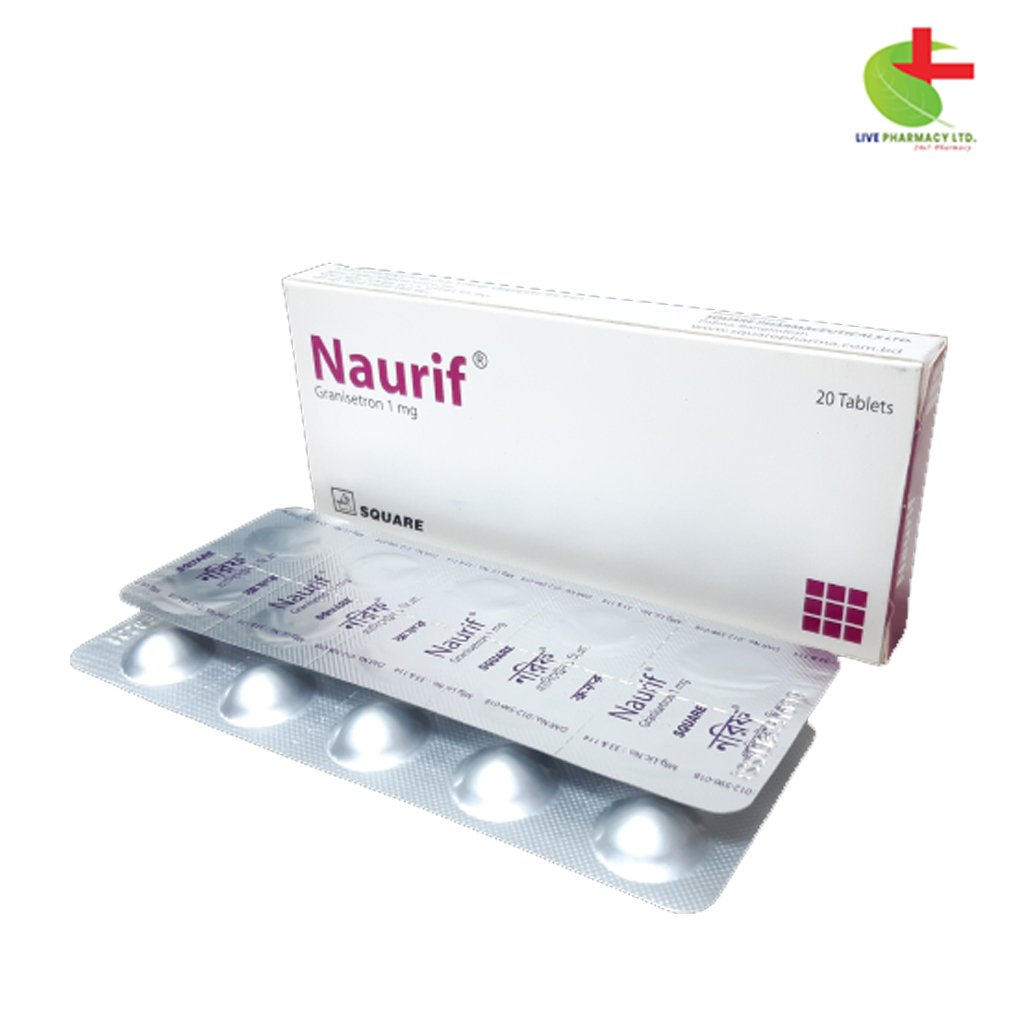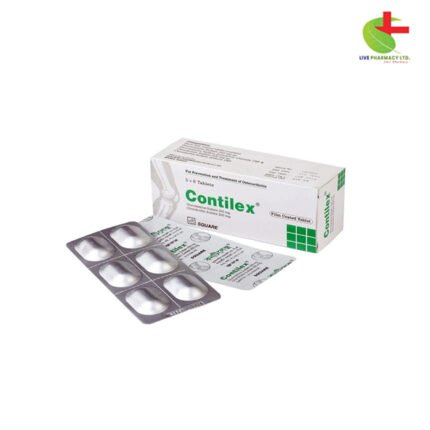Naurif 1
281.90৳ Strip
- Naurif offers relief from nausea and vomiting during cancer chemotherapy and postoperative recovery.
- Its active ingredient, Granisetron, targets serotonin receptors to alleviate symptoms effectively.
- Available in convenient injection and tablet forms, Naurif ensures easy administration for both adults and pediatric patients.
- Trusted for its efficacy, Naurif promises comfort and relief during challenging medical treatments.
 Brand
Brand
|
Square Pharmaceuticals PLC |
|---|---|
 Generics
Generics
|
Granisetron |
Indications
Naurif Injection is indicated for preventing nausea and vomiting associated with initial and repeat courses of emetogenic cancer chemotherapy, including high dose cisplatin. It is also effective in the prevention and treatment of postoperative nausea and vomiting.
Naurif Tablet is indicated for managing nausea and vomiting associated with initial and repeat courses of emetogenic cancer therapy, including high doses of cisplatin, as well as those linked to radiation, such as total body irradiation and fractionated abdominal radiation.
Pharmacology
Granisetron, a potent and selective antagonist of 5-HT3 receptors, acts centrally (in the medullary chemoreceptor zone) and peripherally (in the GI tract) to inhibit nausea and vomiting. By blocking 5-HT3 receptors, it reduces visceral afferent stimulation of the vomiting center and inhibits serotonin activity within the area postrema and chemoreceptor trigger zone.
Dosage & Administration
Granisetron Injection: For chemotherapy-induced nausea and vomiting:
- Adults: Administer 10mcg/kg intravenously within 30 minutes before chemotherapy initiation, only on chemotherapy days. It can be given undiluted over 30 seconds or diluted with 0.9% Sodium Chloride or 5% Dextrose and infused over 5 minutes. Avoid mixing with other drugs.
- Pediatric Patients (2 to 16 years): Use a dose of 10mcg/kg.
- Pediatric Patients under 2 years: No specific dosage established.
- No dosage adjustment needed for geriatric patients, renal failure patients, or hepatically impaired patients.
For treating postoperative nausea and vomiting:
- Adults: Administer a single dose of 1 mg diluted to 5 ml as a slow intravenous injection over 30 seconds before anesthesia induction for prevention. For treatment after surgery, administer 1 mg undiluted intravenously over 30 seconds.
- No established safety and efficacy in pediatric patients.
- No dosage adjustment required for geriatric patients, renal failure patients, or hepatically impaired patients.
Granisetron Tablet:
- For emetogenic chemotherapy in adults: Use 2 mg once daily or 1 mg twice daily. Administer two 1 mg tablets up to one hour before chemotherapy for the 2 mg once-daily regimen or one 1 mg tablet before chemotherapy and another 12 hours later for the 1 mg twice-daily regimen, only on chemotherapy days.
- No dosage adjustment needed for the elderly, renal failure patients, or hepatically impaired patients.
- For radiation, use 2 mg once daily within one hour of irradiation.
- No pediatric dosage established for radiation-induced nausea and vomiting.
Interaction
Naurif does not induce or inhibit the cytochrome P-450 drug-metabolizing enzyme system. However, inducers or inhibitors of these enzymes may affect Naurif’s clearance and half-life as it is metabolized by hepatic cytochrome P-450 drug-metabolizing enzymes.
Contraindications
Granisetron is contraindicated in patients with known hypersensitivity to Granisetron or any of its components.
Side Effects
Common side effects may include headache, constipation, asthenia, diarrhea, abdominal pain, dyspepsia, nausea and vomiting, dizziness, insomnia, and anxiety.
Pregnancy & Lactation
Granisetron falls under pregnancy category B, showing no evidence of impaired fertility or harm to the animal fetus. However, use during pregnancy should be considered only if clearly needed. It’s unknown whether Granisetron is excreted in human milk, so caution is advised when administering it to nursing mothers.
Precautions & Warnings
Caution is advised for patients with cardiac co-morbidities, those undergoing cardiotoxic chemotherapy, or those with concomitant electrolyte abnormalities. Naurif may mask progressive ileus and/or gastric distention. Special consideration should be given to children, pregnant and lactating women.
Use in Special Populations
Pediatric Uses: The safety and effectiveness of Naurif in pediatric patients under 2 years have not been established.
Geriatric use: Efficacy and safety were maintained with increasing age.
Therapeutic Class
Anti-emetic drugs, Supportive Care Therapy
Storage Conditions
Injection: Store below 25°C. Protect from light. Tablet: Store below 25°C. Protect from light.













Reviews
There are no reviews yet.